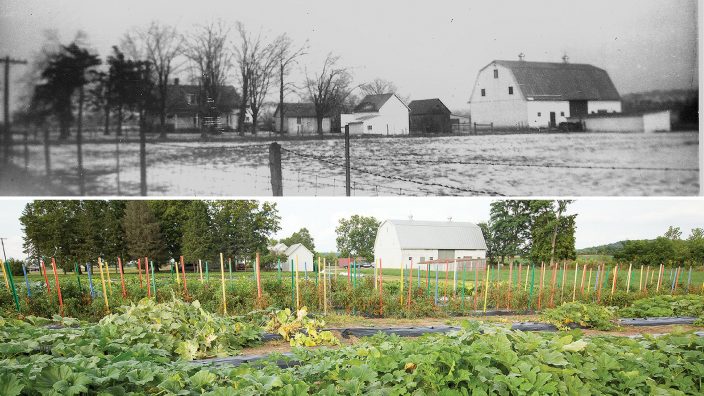Applications for Ohio Farm Bureau Health Plans now available
Members have three ways to apply: contacting a certified agent, calling 833-468-4280 or visiting ohiofarmbureauhealthplans.org.
Read MoreThese Ohio farms have stayed in the family for generations
Danger, drama and determination are all elements of the story Austin Heil likes to share about how his great-great-great-grandfather, Nicholas Heil, started the family farm in Hardin County.
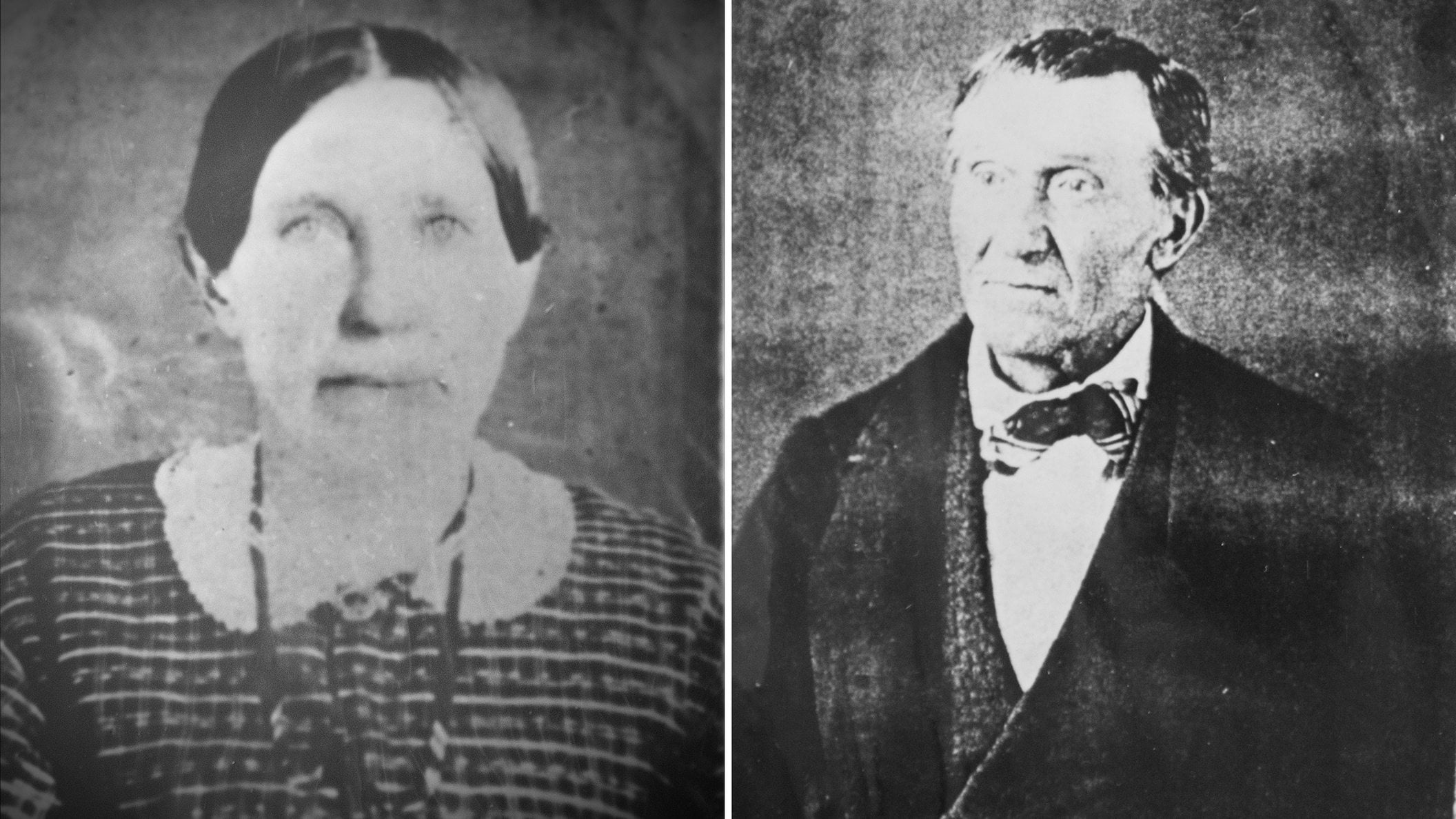
The year was 1829 and disguised in his mother’s clothes, the 21-year-old Nicholas was on a ship bound from Germany to America. He was leaving behind his friends, family and native language for a chance to farm in the New World and avoid being drafted into the German military. During his journey to a better life, he endured more than two hard months at sea, a year in the “poor house” recovering from illness and seven years as an indentured servant to pay for his voyage. Debts paid, he traveled west and on June 6, 1839, he bought a total of 160 acres for $640 in a heavily wooded area near Kenton. Some of those acres are still being farmed by the Heil family today. The landscape and agricultural practices have changed but the goal remains the same — to provide food, fuel and fiber for today’s growing population.
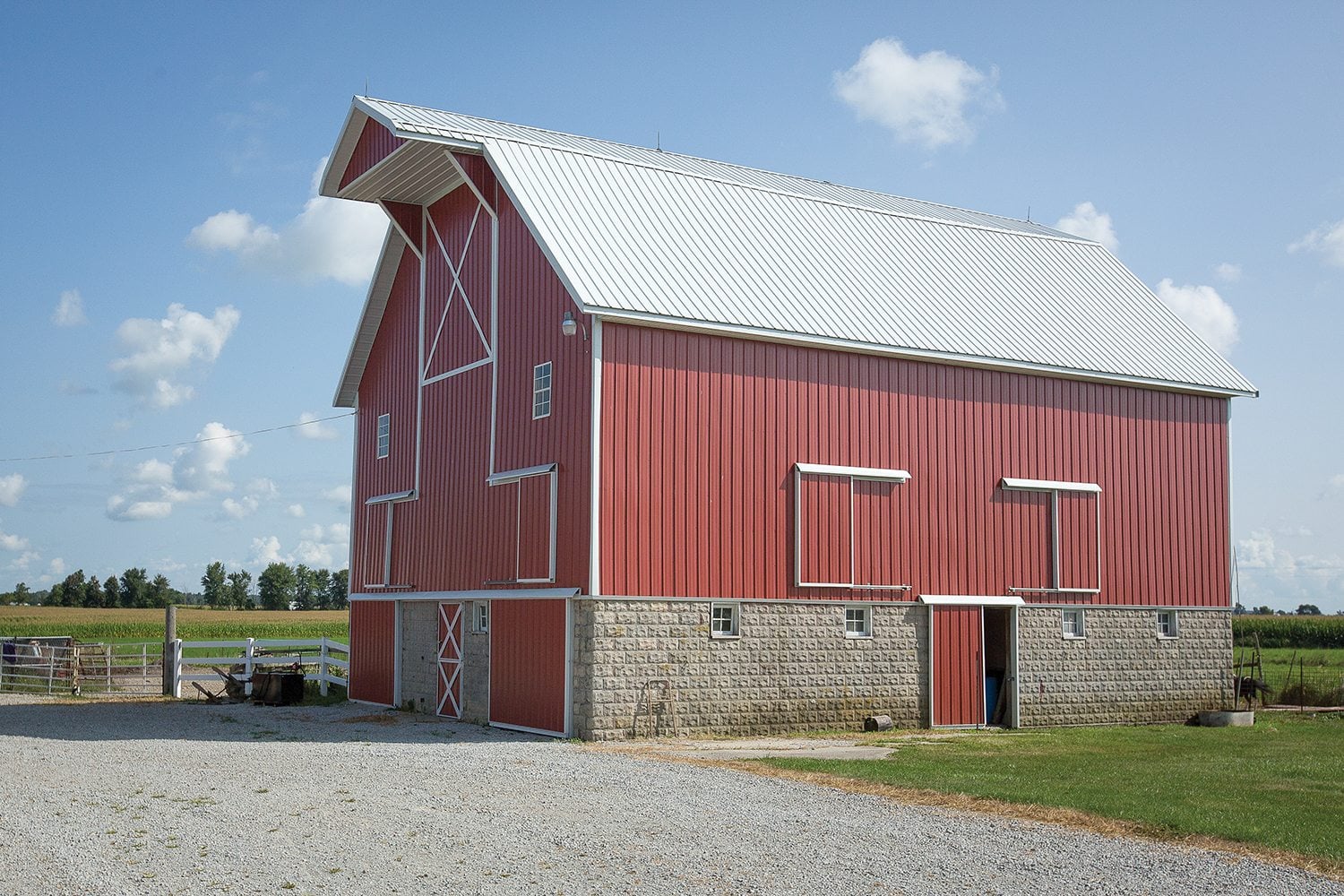
“I find it amazing that my forefathers breathed in the same cool morning air as I am today,” said Heil, a Hardin County Farm Bureau member, as he took a deep breath on a damp summer morning. “Originally I didn’t think much about the history of the farm but I’ve come to realize it’s a privilege and honor to be the sixth generation of Heils to farm here.”
In 1993, the Ohio Department of Agriculture recognized the Heil farm in a program honoring farm families who have continuously owned the same land for at least 100 years. Over the years, the program has honored more than 1,350 century, sesquicentennial and bicentennial farms across the state (see sidebar).
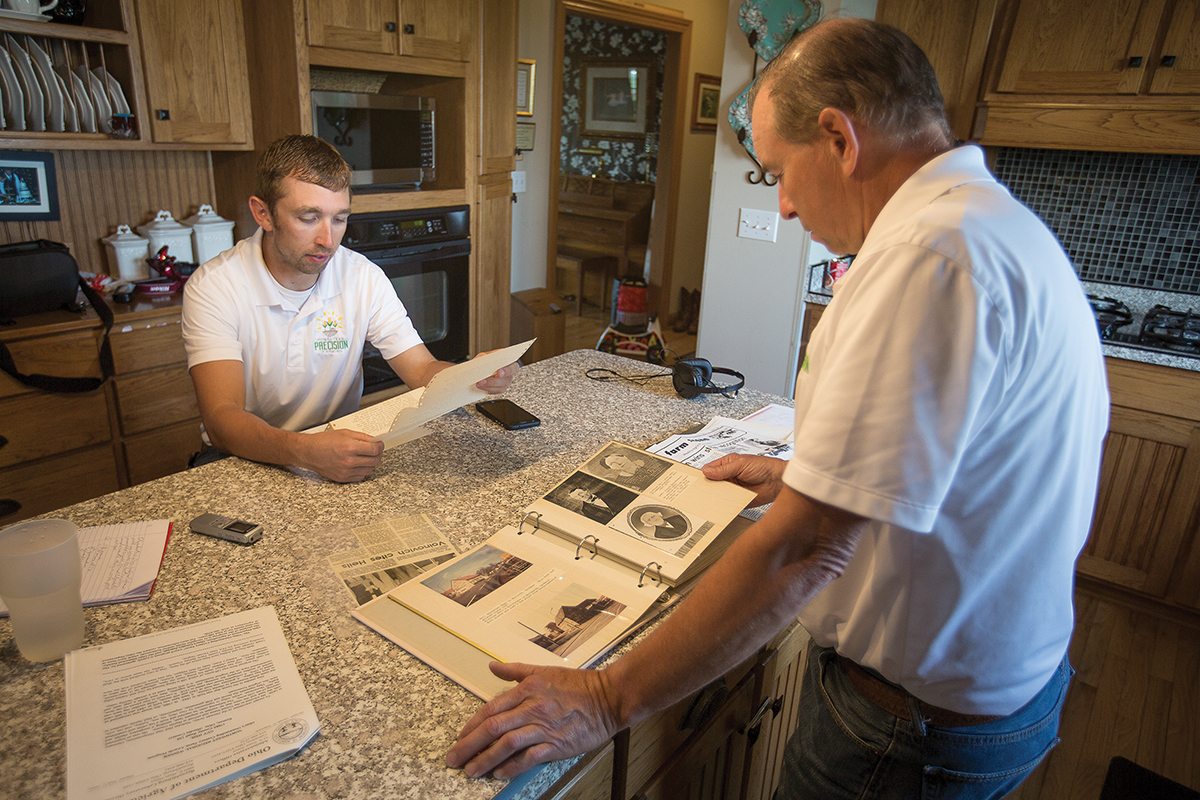
“The United States was built on the farmers’ back, and this land is a source of pride and joy for me,” said Heil who raises corn, soybeans and hay with his father, Ashley, on 280 acres that they own or rent. It took a few years for Heil to realize how much he loves his family’s homestead. After graduating from Ohio State University with a bachelor’s degree in agricultural systems, he became a combine field test engineer for an agricultural and construction equipment manufacturer and traveled throughout the United States, Canada and Brazil. “It gave me the opportunity to value what we have in Hardin County,” he said of his decision to return home.
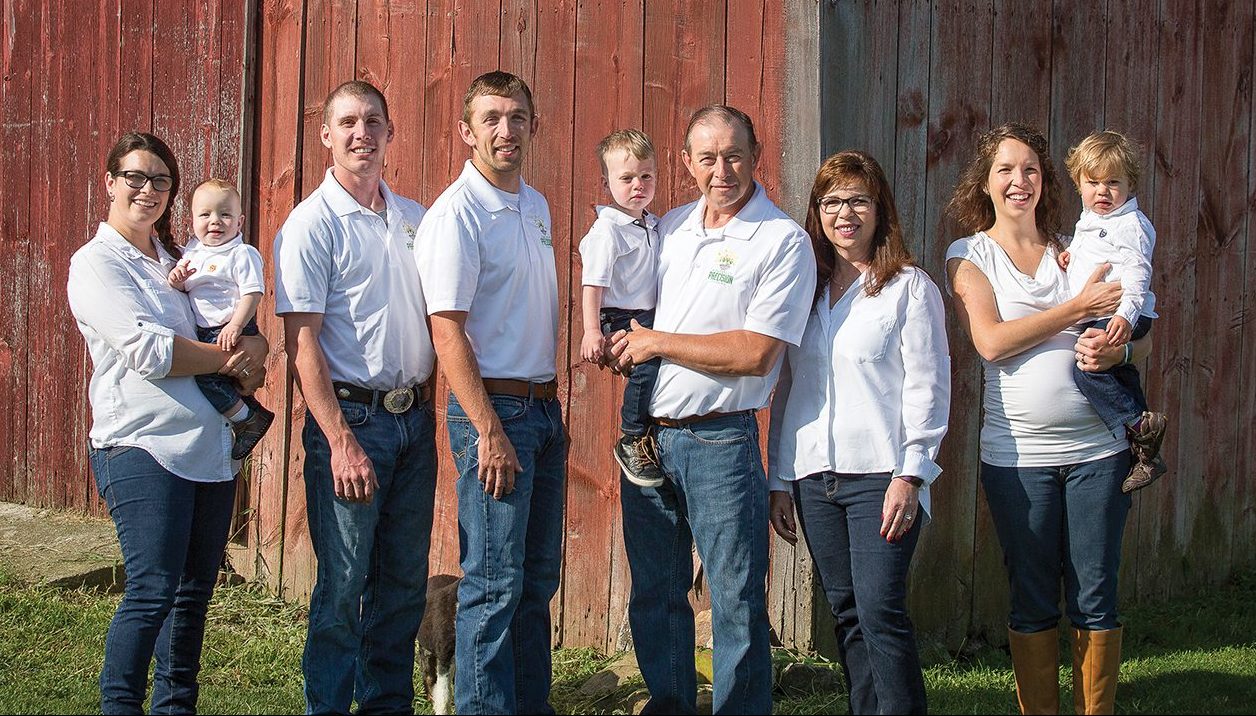
But the family farm was too small to sustain two families so Heil got a job at Honda Research & Development, testing the next generation of automobiles. One day a co-worker looked at him and said “You don’t belong here. You’ve got a passion for something outside of here.” That passion was farming, and Heil decided to focus on growing his business, Homestead Precision Farming, which he started in 2014. His business consists of managing and eliminating variability through the use of drones, improving planter performance and other precision technologies. Starting a business is hard but Heil, a triathlete, is determined he has the endurance and drive to succeed much like his great-great-great-grandfather did when he left his homeland 188 years ago.
“In order to keep our heritage farm going, you have to be innovative much like Nicholas was when he came to America,” Heil said. “Challenges drive innovation. I take great pride that our family has continued to farm since the first day he arrived here.”
A living museum
An hour south of Columbus on the outskirts of the small town of Frankfort in Ross County lies the farm of Joe and Terri Cory. The first Corys arrived in the area before Ohio was even a state, and two brothers, Nathan and Stephen, worked for Nathaniel Massie, the famous frontier surveyor who founded Chillicothe. The story passed down is that the Cory family was very religious and against slavery and moved from Virginia to Ohio in the late 1790s. Nathan and Stephen carried Massie’s survey chains in the Chillicothe area and were awarded with several acres of land. Today, Joe and Terri Cory live on a registered bicentennial farm that has several historic structures, including an 1873 farmhouse, a carriage house and a wood shop that has a corner blackened by a fire that Joe’s great-grandfather caused while working as a blacksmith.
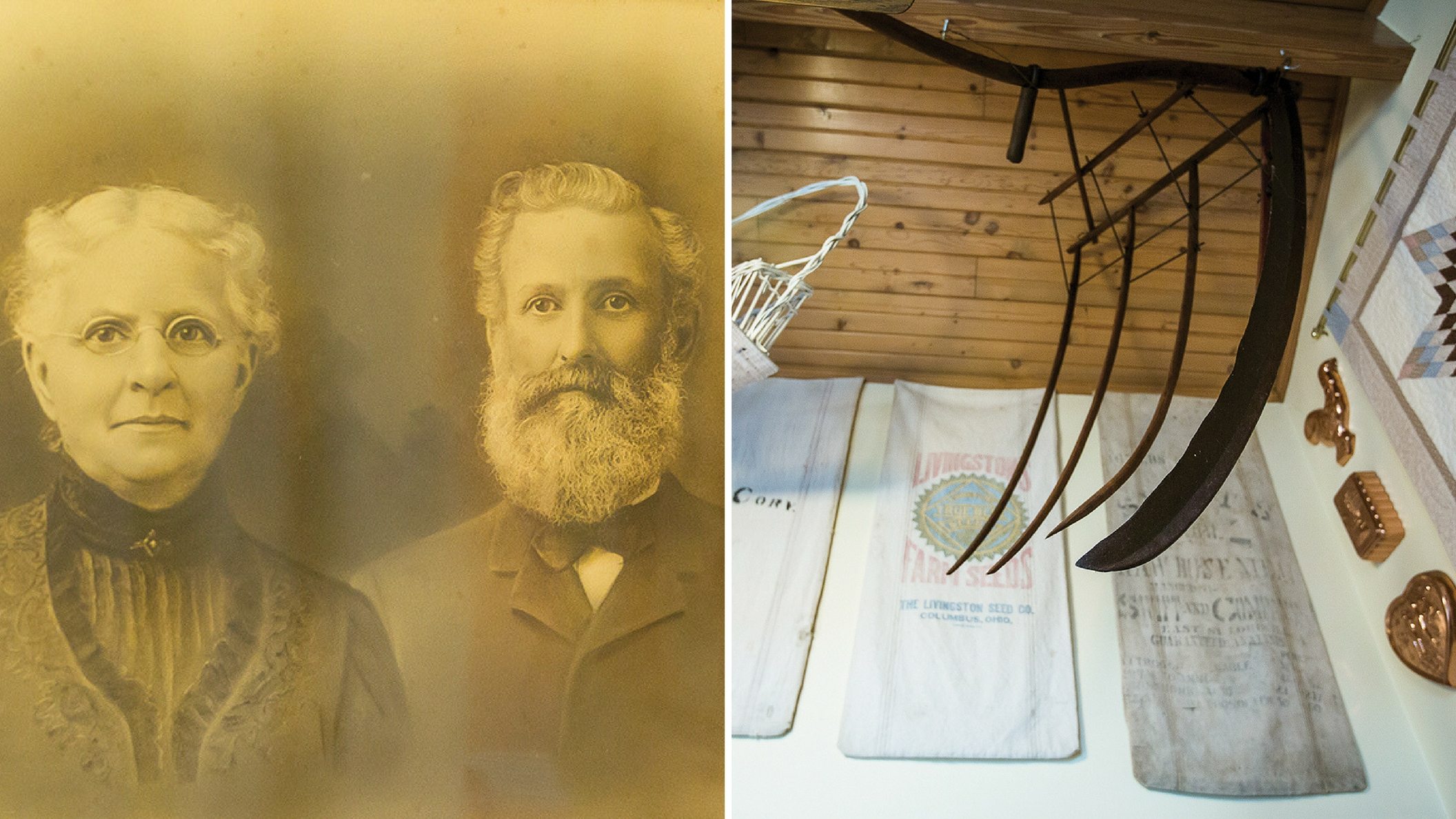
For years, the family grew fruits and vegetables and ran a dairy farm with Joe’s father, Jesse, spurning automatic milkers and continuing to milk by hand until 1956 when he hurt his back. The family owns a total of 220 acres of which 118 are from the original farm. All are rented out for grain production except for about 5 acres, which are used for growing fruits and vegetables. The couple’s son, Steve, resurrected the family’s fruit and vegetable production only to be sidelined by complications from Lyme disease. Their other son, Grant, is currently attending Ohio State University, majoring in agricultural systems management. Today, Terri tends the fruits, vegetables and perennials and makes jams and jellies while Joe is in charge of the sweet corn production. They sell their products at the Chillicothe Farmers Market, every Saturday from May to October.
In 1986, the couple moved into one of the more unique structures on the property — an original four-room Sears Roebuck Kit Home that arrived by rail around 1913.
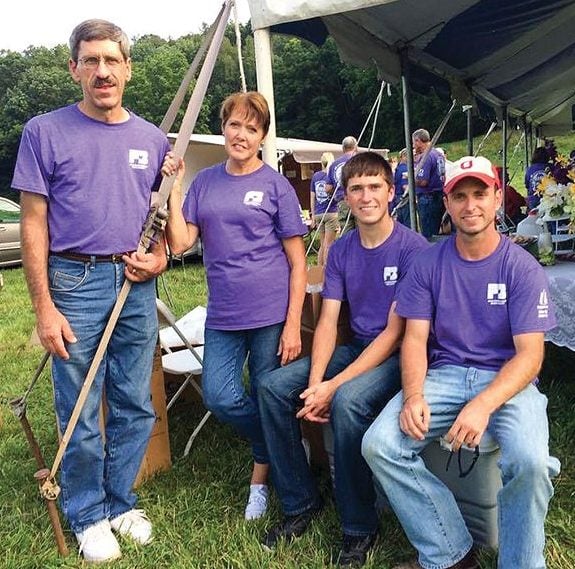
“Initially we thought we’d tear it down (because it was in bad shape) but when we found my grandfather’s ledger book and the shipping seals and the more research we did, we decided we wanted to save it,” Joe said, marveling at the thought that a family with five girls once lived in the 475-square foot house. The Corys added onto the house and filled it with
family artifacts, including a hand-drawn family tree from the mid-1800s and an old scythe found in the barn.
Sitting at a table, Joe and Terri peruse an old family journal documenting the Cory family’s life. Included are tidbits about everyday life, poetry and observations about the growing season. The couple stop on a page dated 1863 and in unison read a poem marking the death of an infant daughter.
“It’s lovely and heartbreaking,” Terri says after a short pause. “This is just one chapter of the Cory family. So many hardships back then but also so many happy times … kind of like today.”
Learn more about Ohio’s historic farms
Started in 1993, the Ohio Department of Agriculture’s Historic Family Farms program recognizes the many social, economic and historic contributions made by Ohio’s founding farm families. The program was started as a way to honor these families for their enduring legacy to Ohio.
The program has three categories:
Qualified registrants receive an heirloom certificate signed by Ohio’s governor and the state’s agriculture director. Learn more about the program and read about the history of dozens of old family farms at agri.ohio.gov/divs/cent_farms.
Featured Image: The Cory farm in 1941 and today.
Photos by Dave Liggett


Members have three ways to apply: contacting a certified agent, calling 833-468-4280 or visiting ohiofarmbureauhealthplans.org.
Read More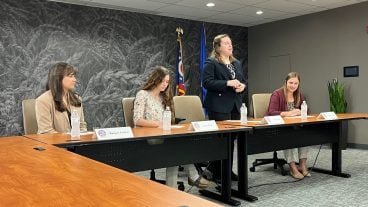
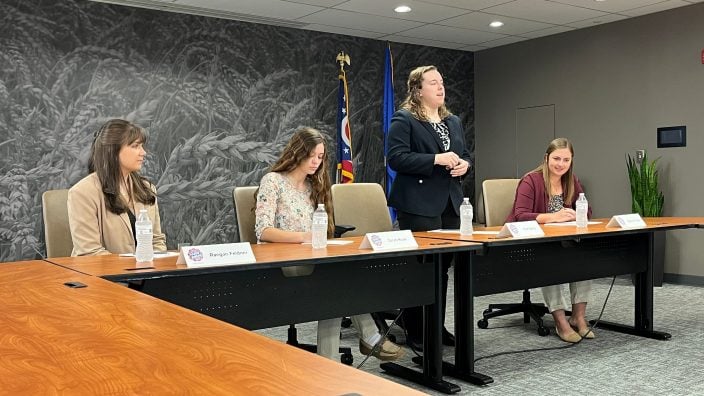
Collegiate Farm Bureau serves as a connection to current industry professionals and equips the next generation with the essential tools and resources needed to excel in their careers.
Read More
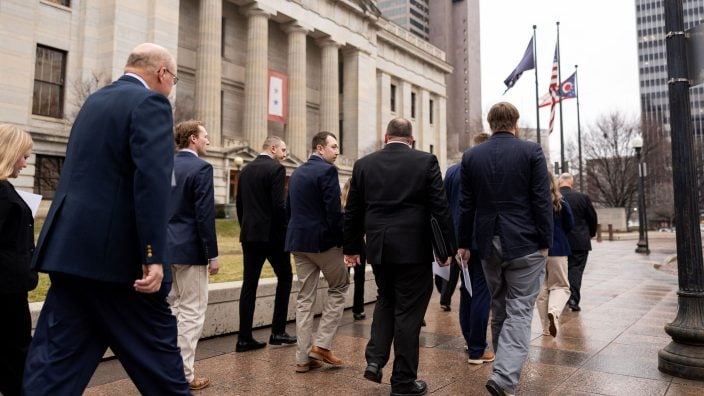
Ohio Farm Bureau members met one-on-one with state legislators and staff to discuss policy priorities impacting Ohio’s farms and rural communities.
Read More

Legacy nutrient deductions enable new farmland owners to claim deductions on the nutrients within the soil on which healthy crops depend.
Read More

Farmers, agribusinesses and community members are encouraged to nominate their local fire departments for Nationwide’s Nominate Your Fire Department Contest through April 30.
Read More

Introduced by Sen. Paula Hicks-Hudson, SB 120 would establish the Urban Farmer Youth Initiative Pilot Program.
Read More

Gases, vapors, and fumes can all create risk. How can we measure and protect ourselves from them?
Read More

The Ohio Farm Bureau’s Young Agricultural Professionals State Committee has named its 2026 leadership and the individuals who will be serving on the state committee for 2026-2028.
Read More

The Ohio Farm Bureau Foundation has multiple scholarships available to Ohio students from rural, suburban and urban communities who are pursuing degrees with a connection to the agricultural industry.
Read More

With 100% bonus depreciation now permanent, farmers can deduct the full cost of a new agricultural building in the year it’s placed in service.
Read More